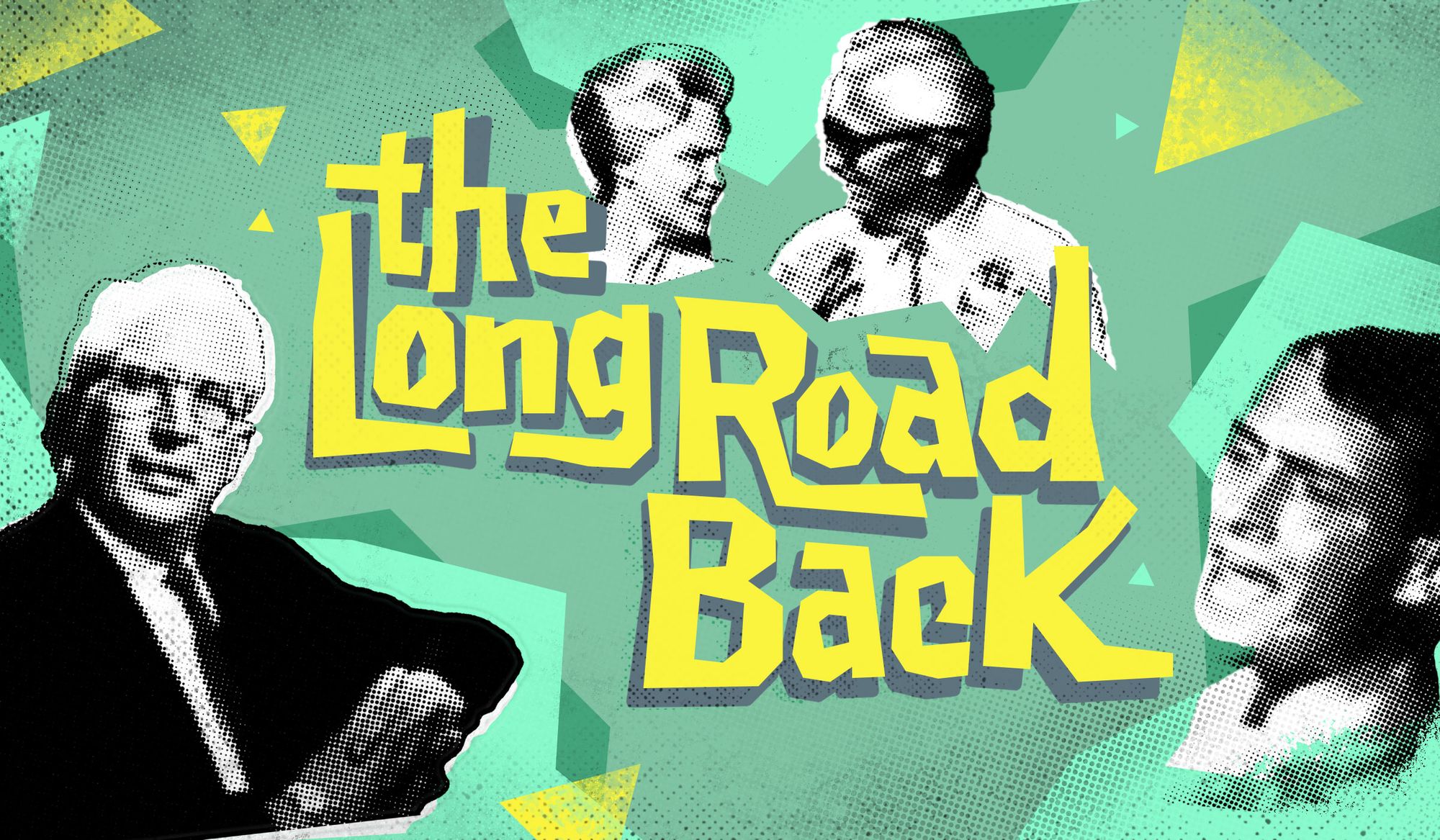By reader request (I don’t remember who. Sorry.), I’ve decided to take a deep dive into a 1965 Mormon film called “The Long Road Back.”
We begin with a man whispering to a woman through a barely ajar door. Their faces are mired in shadows.
“Ok, I’ll call you tomorrow,” the man purrs. The woman’s silhouette barely peeks through the gap. She’s staring at her suited suitor with one suspicious eye. “Alright,” she breathes at him.
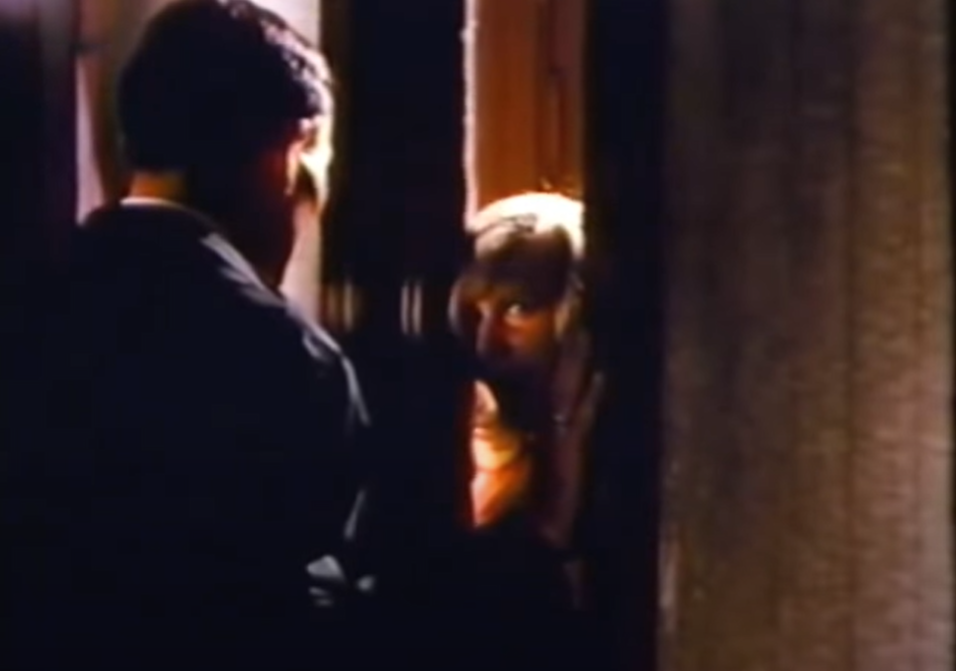
The woman is Sue and the man is Bob. Bob whispers a “happy birthday” at Sue as she shuts the door on him. Bob then slinks away down the hallway, his shoulders forced into slumped despair—the international sign for self-loathing.
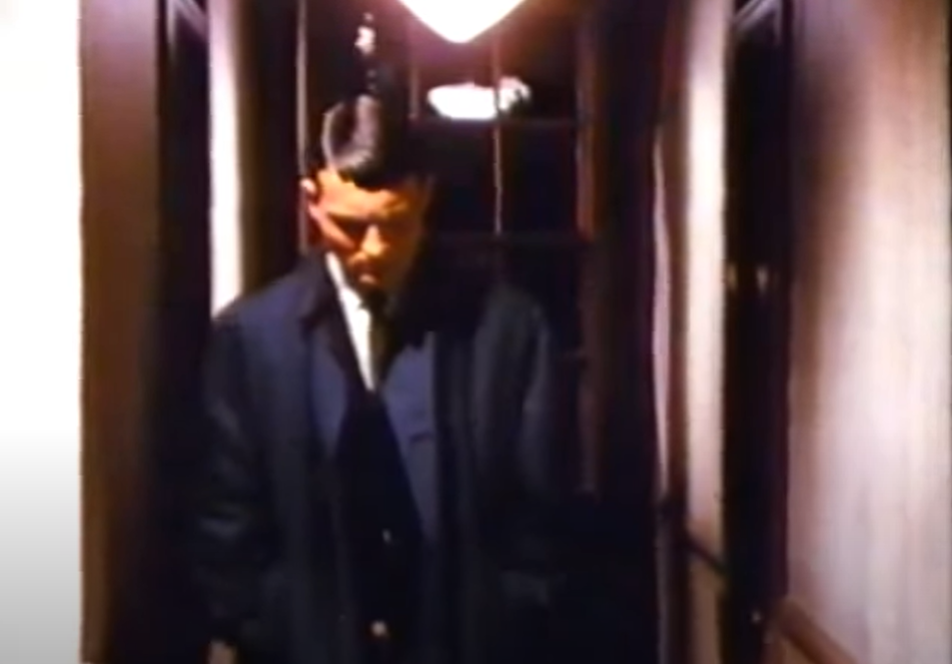
The credits roll for a while as Bob walks home to his apartment where an exactly generic man, who looks like if a bag of marshmallows read the Bible in a mid-century farmhouse, is typing on a typewriter. This is Bob’s roommate, Arthur.
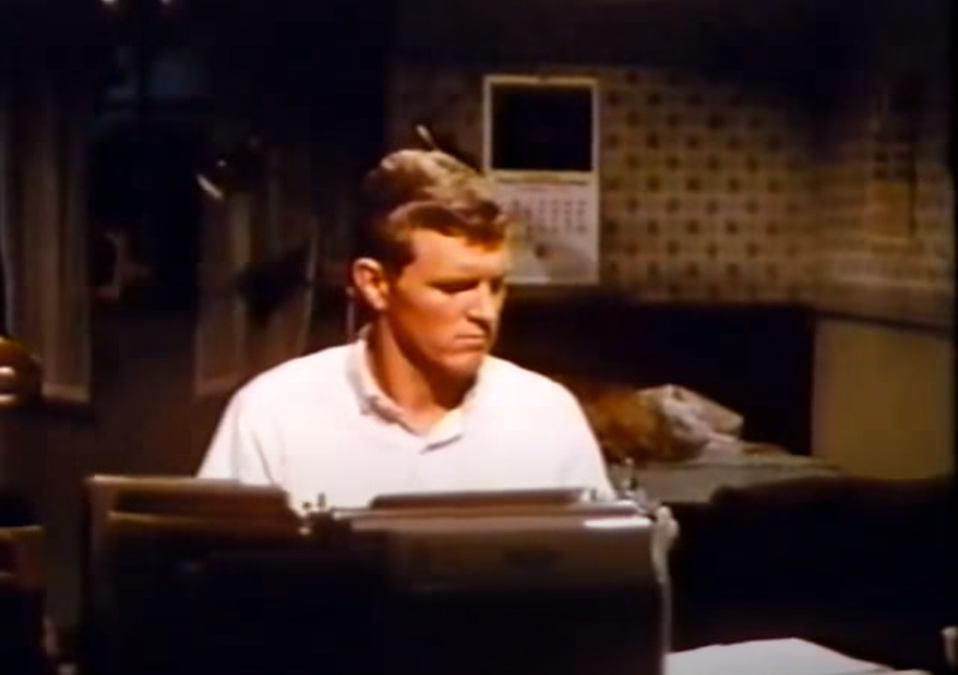
Buckle up for Arthur. This dude sucks. Arthur has the personality of a half-deflated children’s swimming arm floaty in the backseat of a chipped white Astro van sitting in the sun in a Kohl’s parking lot.
This was our family vehicle in 1995. We called it Winslow. We weren’t special. Every Mormon family in the state of Utah had this van that year. One day my mother loaded an entire shopping cart of groceries into the back of it, climbed inside, and tried to start the engine. When she realized her key didn’t seem to fit the ignition, she turned around to find three small children she didn’t know sitting in the middle seat. This was back before children had rights and you could leave them in cars. Mom finished frantically unloading the van and running to Winslow parked two stalls away just moments before the children’s mother returned.
Anyway, Arthur, who appears to be typing something about geology on a Friday night, says hello to Bob. Behind him are two beds, Bert and Ernie-ing in the background. It appears Bob and Arthur share this small room together.
Bob climbs into the shower and from there he shouts through a completely irrelevant conversation as Arthur searches the apartment for notes he took in class. During this scene we are treated to some outrageous male nudity [juicy screenshot below].
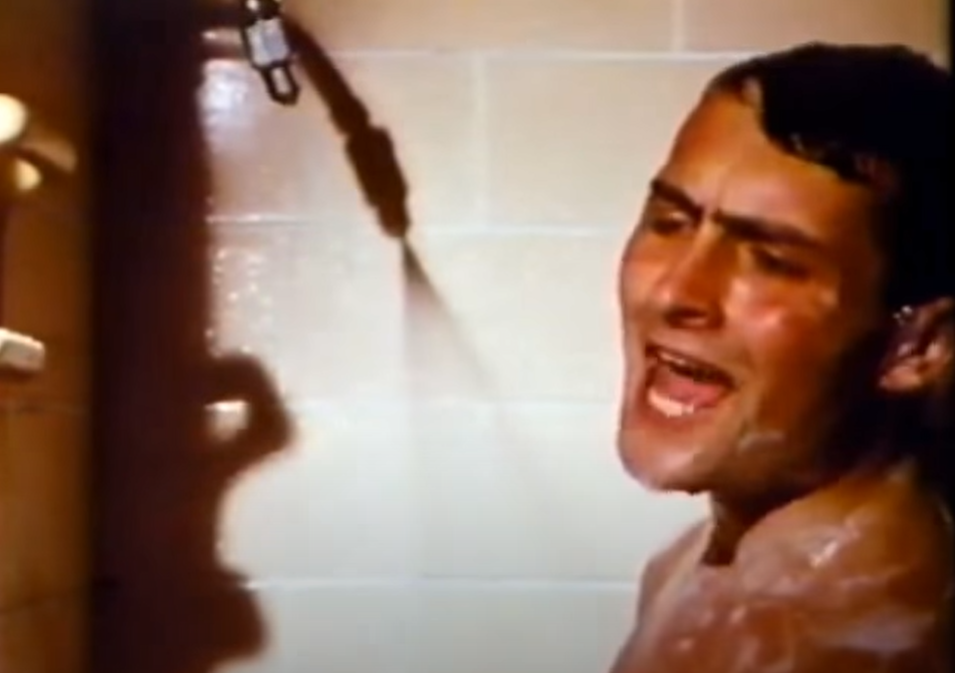
Just then, the phone rings. It’s Arthur’s girlfriend or grandmother, Elaine.
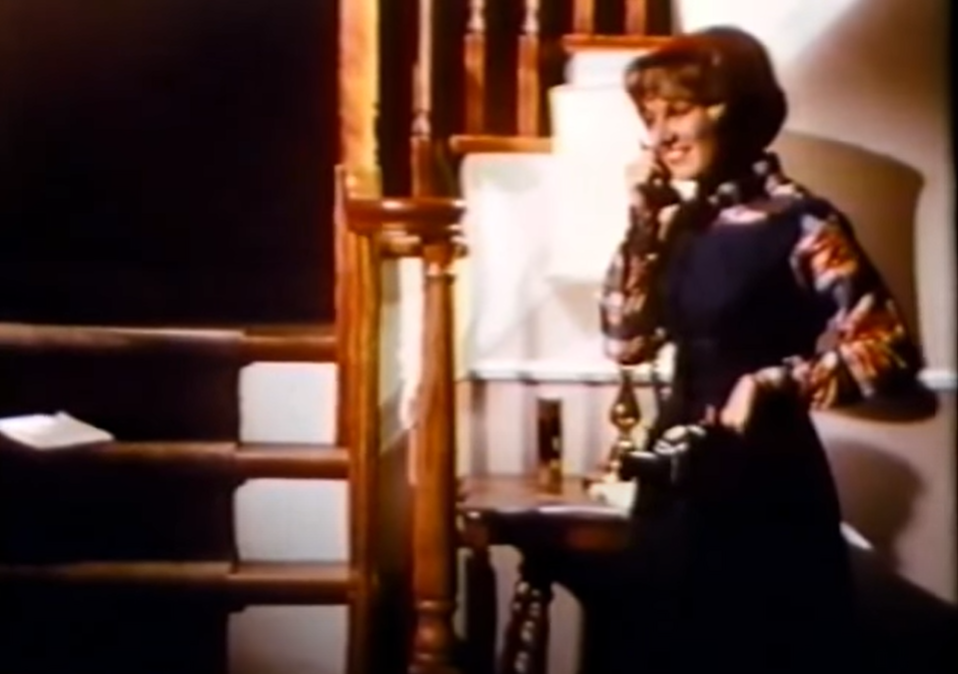
Elaine is excited to tell Arthur some news about her upcoming study abroad program where she will definitely pose for photos in which she is pretending to knock on a castle door with one hand to her open surprised mouth and then post them to Instagram before returning home where she will show up to testimony meeting wearing a beret and saying “bonjour, brothers and sisters! Sorry. Habit.”
Arthur says he can’t find his class notes and if he doesn’t find them “my name is gonna be mud!”
“Well I hope not!” Elaine responds. “Because I don’t want to be Mrs. Mud!” I mean this in the most offensive way possible: Elaine and Arthur are a perfect match.
“Elaine, you’re the nicest thing to ever happen to me. No kidding! How come I deserve a girl like you,” Arthur concludes, based on absolutely no evidence we’ve yet seen.
Arthur then gives a very long monologue of exposition where he explains that he came home from his mission thinking he would never find “the right girl” but then Elaine sat down next to him in institute class one second later and she’s everything a woman should be.
Elaine’s qualifications: Female. Nearby. Opinionless. Strokes Arthur’s ego. Grandma hair.
Bob is now in the background drying off from his shower and listening to Arthur’s sermon.
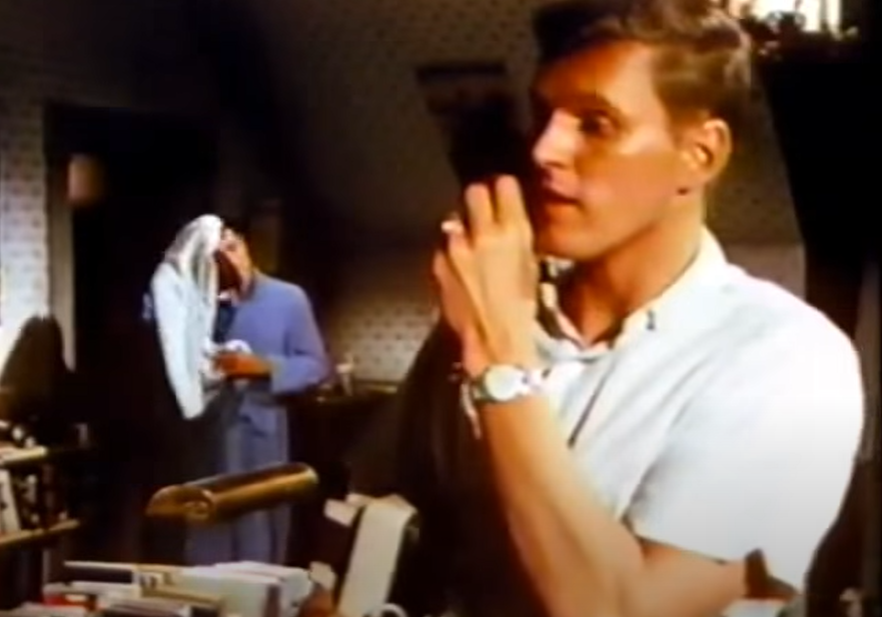
This film is a missed opportunity. A gay romance set in a 1960 college campus between two roommates dissatisfied with their attempts at hetero dating? I’m sorry to be one of those gays who makes everything about himself, but the screenplay writes itself.
The phone call ends and Bob asks Arthur “hey, this thing between you and Elaine. It’s . . . for real? I mean, for life?”
“Not for life, fella. For eternity!” Arthur corrects him. “We’re making sure of that!” he explains, like someone who is meeting with State Farm to negotiate maximum coverage.
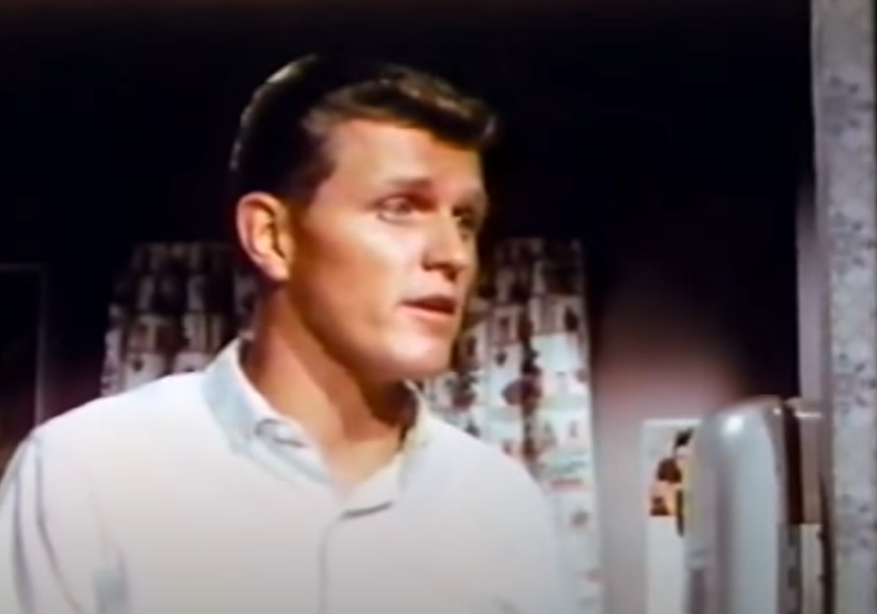
Bob is visibly distraught and Arthur notices this. Bob has a very serious problem—that’s for sure. But Bob doesn’t seem ready to open up about whatever his problem is.
Arthur asks Bob why he’s home so early. “It’s nearly 11:00,” Bob responds.
“That doesn’t usually stop you and Sue!” Arthur slut shames him with a side glace that suggests a stern disapproval that his grown-ass roommate sometimes stays out later than 11:00 on a weekend.
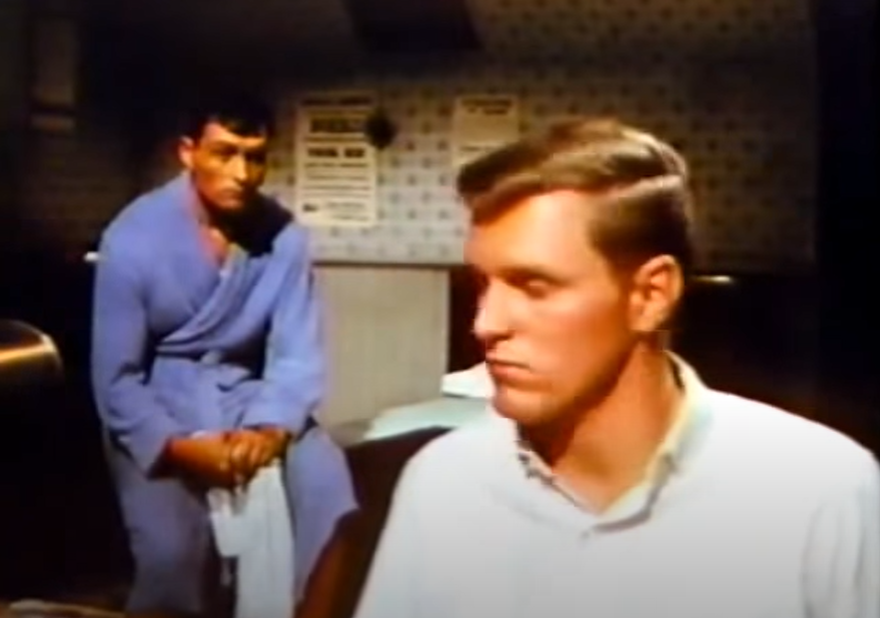
Arthur and Bob decide to go to bed. “Shall we have our prayer?” Arthur asks as he drops into a bedside kneeling position.
I had a roommate at Brigham Young The Lord’s University in two thousand and mumble mumble who once suggested to me that we start having nightly prayers together and even my then-religious self was like “MY MEDITATIVE CONVERSION THERAPY IS A PRIVATE MATTER, SIR.”
This same roommate around that time used to regularly ask his dates which of two Mormon temples would win in a fight and one day he came home, baffled, when one of his 18-year-old-blonde dates responded to the question by demanding he immediately take her home because she didn’t want to marry someone who didn’t respect eternal covenants. It was weird to side with Temple Fight Guy as the less extreme party to the religious altercation, but this bitch shows up for relative temperance.
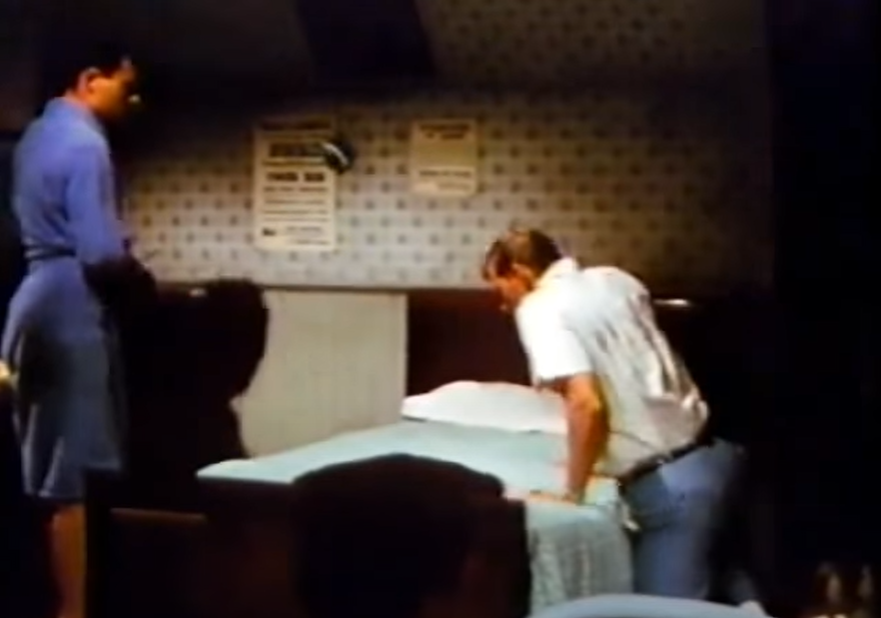
Anyway, Bob then asks Arthur “do you ever feel disgusted with yourself?” which was actually very relatable for me, man who has ordered a number 12 at Betos at 1:00 AM on many occasions.
Then Arthur responds that he does sometimes feel disgusted with himself when he makes mistakes, like misplacing his notes. Aware that Arthur is not going to be helpful in a conversation about self-loathing, Bob tells him to “forget it.”
I’ll tell you what—and I’m sorry to be that guy—I could fix Bob. Bob is fine. I could be there for Bob. And I can already tell Arthur is going to ruin this with his Arthurness.
Arthur tells Bob it’s Bob’s turn to pray. “Will you do it tonight, Arthur?” Bob asks him.
Arthur is horrified that Bob is passing up on his turn to speak with THE LORD. He doesn’t know how to handle this terrifying dilemma. Arthur has not experienced any adversity prior to this. Anyway, Arthur relents.
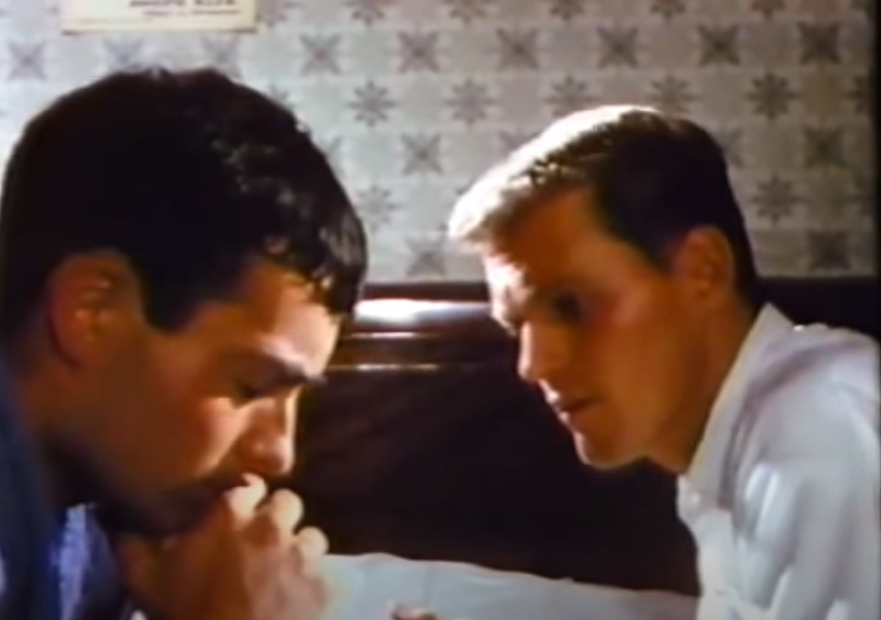
Up next, Arthur and Elaine attend a Sunday school lesson where the football coach who was popular in high school but never left the town and now sells essential oils with his high school girlfriend explains that a temple marriage “is the only way to get married.”
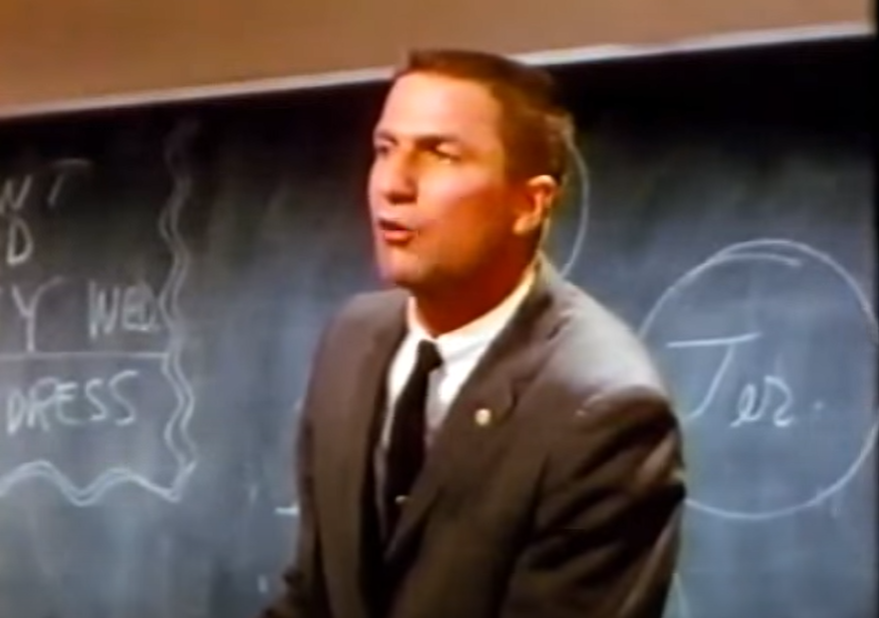
After class Arthur and Elaine sit and talk about how they can’t seem to get Bob to go to church classes during the week. Arthur and Elaine are very upset about poor old Bob. “You know how Bob is when you try to push him into something,” Arthur says.
“Maybe I should tell Sue in case she decides to try to push him into marriage!” Elaine responds, suggesting a very enlightening view of relationships.
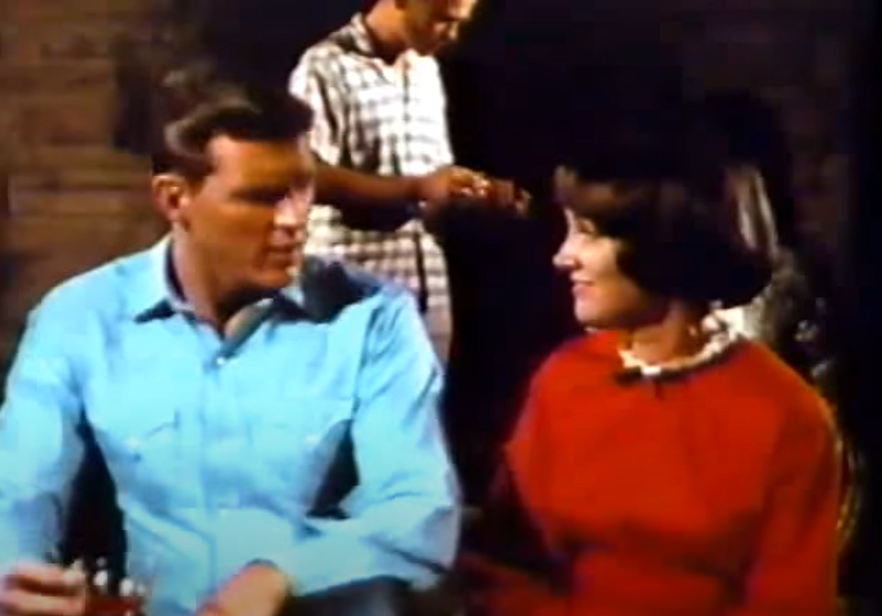
Arthur says that late last night Sue called Bob and Bob took the phone into another room and shut the door so Arthur couldn’t hear the conversation. “I don’t like it!” Arthur says. “Something is wrong there,” he hisses, as though Bob’s basic attempts at preserving privacy from his extremely judgmental gestapo roommate constitute the smoke of moral turpitude.
Then there’s a completely pointless square dance.

As the dance ends, a so-far-unintroduced bishop turns to his wife and says “Mother! I’m getting too old for this sort of thing!”
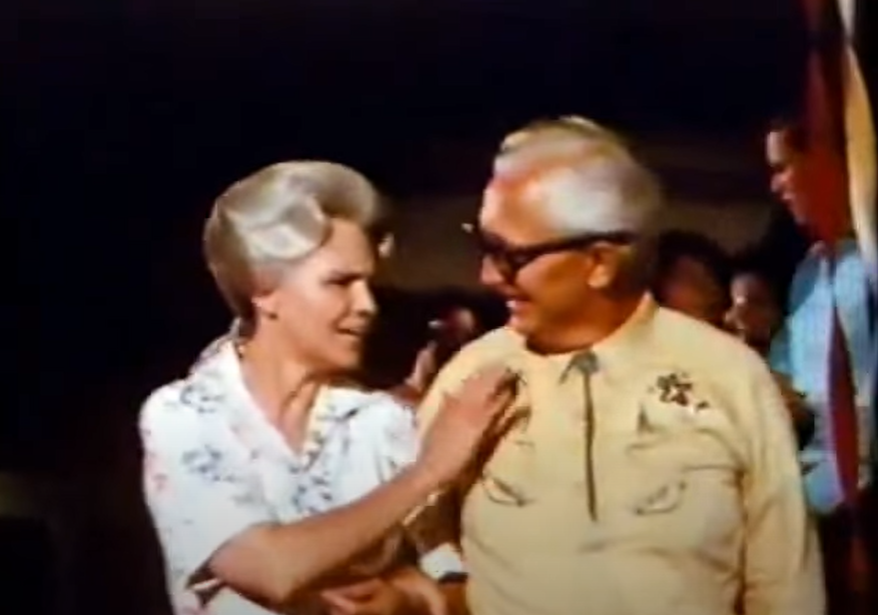
Can someone please explain to me how it has ever been an acceptable thing for a man to call his wife “mother?” No. Let’s go a step further. How has there ever even been a demand for this in the first place? Who is it for? Does the woman want the man she used to have sex with to address her as his parent? Does the man like thinking of the person he married in this way? Is this term being used sarcastically and I just don’t get it? Why are straight people?
I’m going to start calling my husband “mother” and see how long I can get away with it.
OMG this is probably how it starts.
Arthur then tells Elaine he’s exhausted from that dance because “that big girl” got ahold of him in the last part and “threw [him] around.”
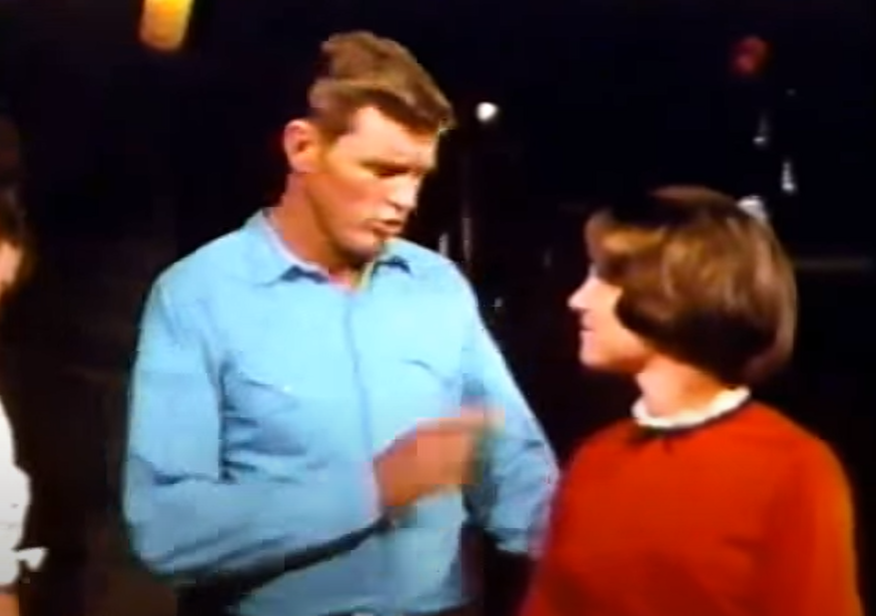
Elaine jokes with Arthur that this woman must have a crush on him. And it’s hilarious! Because she’s fat! Fat people are so funny! And obviously not a threat to Elaine!
This film is only for thin boring white straight people who pretend to have no sexual impulses. This film is for the BYU School of Business.
Arthur and Elaine then run into the bishop who says he’s been looking around for Bob and Sue and can’t seem to find them at this absolute rager. Arthur and Elaine share in the bishop’s frustration that Bob is not going to square dances on weeknights.
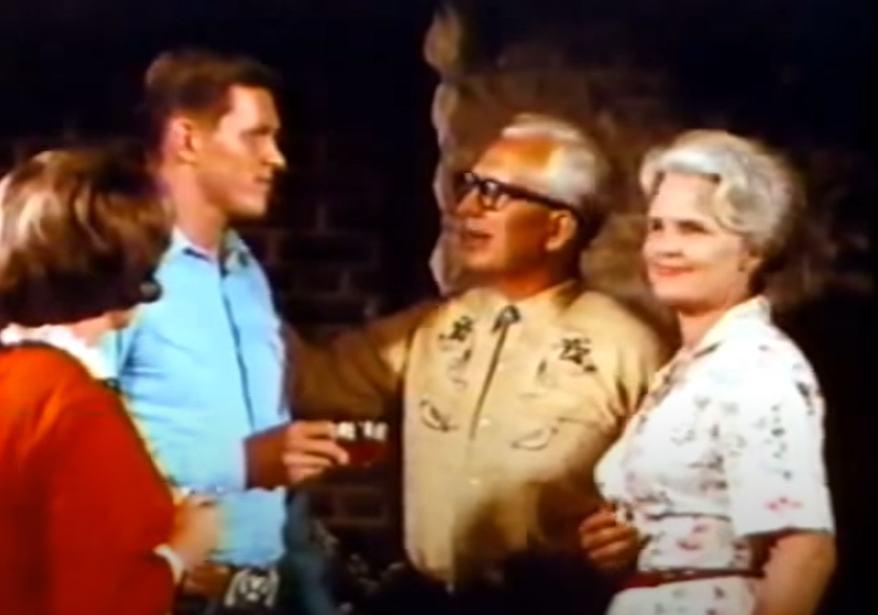
Arthur goes home and finds Bob in a white shirt and tie, sitting on his bed, looking even more sullen than before.
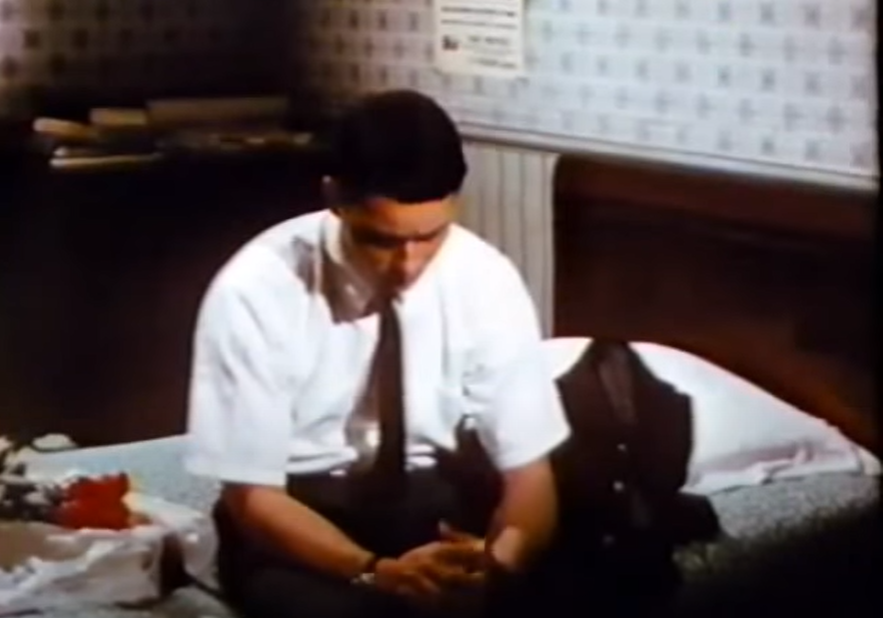
Dear God I hope the big reveal is that Bob is a cannibal. I don’t know if I can take another 1960s BYU film about a closet case who touched a boob.
Arthur asks Bob what the problem is.
“Just leave me alone!” Bob yells.
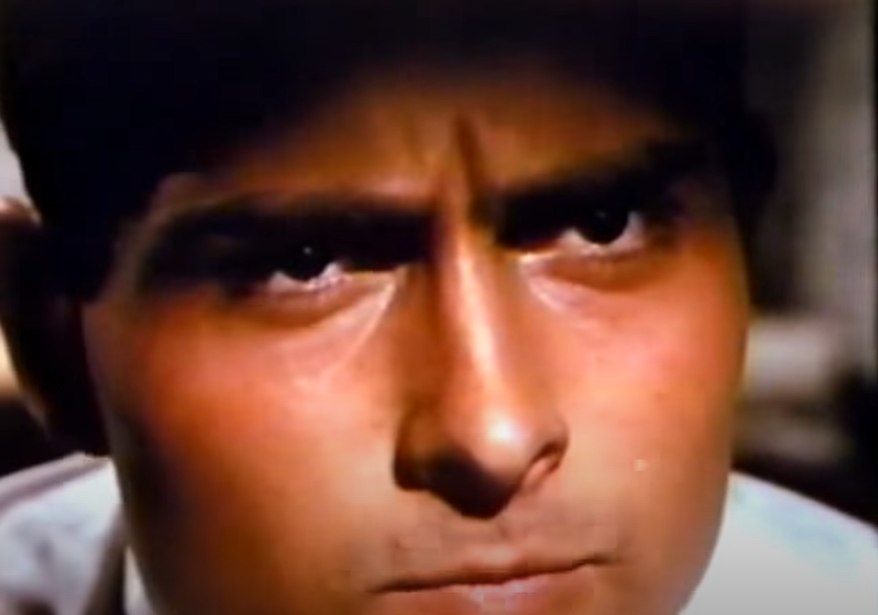
Bob says he’s packing his bags, dropping out of school, and going back home to his parents. Arthur prods to find out what happened.
“Will you leave me alone, Art?!” Bob yells.
Arthur gives up. “Do what you want! I don’t care!” he shouts, which seems inconsistent with, well, how overinvolved he’s so far been.
This finally gets Bob to open up.
“Art, I’m sorry,” he says. Bob hands Arthur a card. It’s a birthday card to Sue from her parents. In it, the parents explain that they couldn’t come visit her for her birthday.
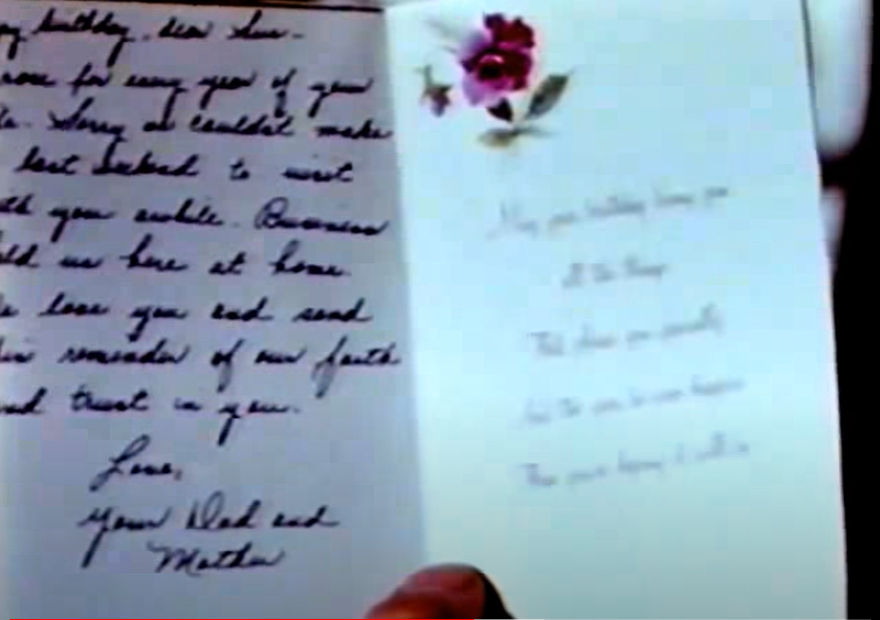
“Understand!?” Bob shouts at Arthur after he finishes reading the completely uninformative card.
Bob then dishes out a mopey monologue where he says Sue came over and threw that card in his face, informing him she’s going to “go home and tell her parents!”
“I guess she has the right to tell her family,” Bob says, still not explaining what the hell is going on.
Bob says that now that he’s done some unnamed terrible thing, he doesn’t value Sue anymore.
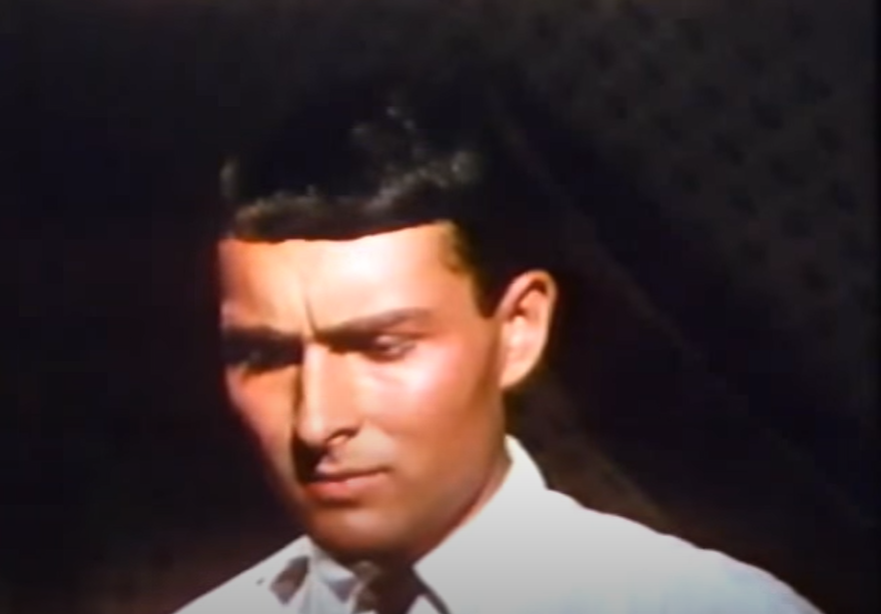
I think we’re supposed to assume they hanky panked to some degree, but this film’s absolute refusal to defile itself by uttering the word “sex” or any adjacent descriptor is honestly so confusing that I’m still not sure whether Bob and Sue went down to pleasure town or murdered someone and dumped their body in the desert.
“Bob, whatever made you do this?!” Arthur, who doesn’t seem to understand that people have sex-drives, asks.
“I don’t know,” Bob responds. “It started so innocently.”
We are then taken to a cautionary flashback depicting a time when Bob and Sue were happy and not yet sullied by one another’s wandering hands.
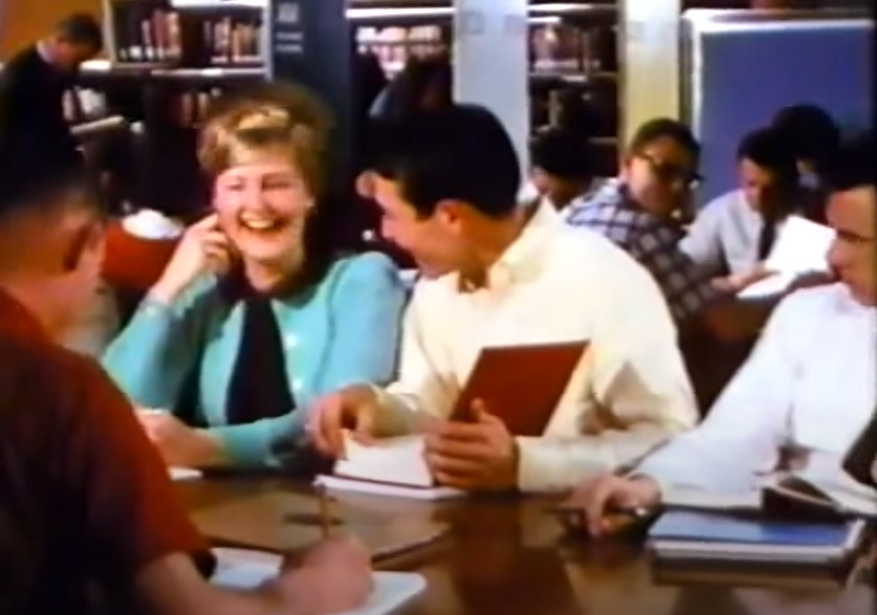
Bob explains that it all went wrong when they stopped double-dating, which led them to spend time alone where they became “more intimate.”
Then there’s an explicit sex scene. This next picture is NSFW.
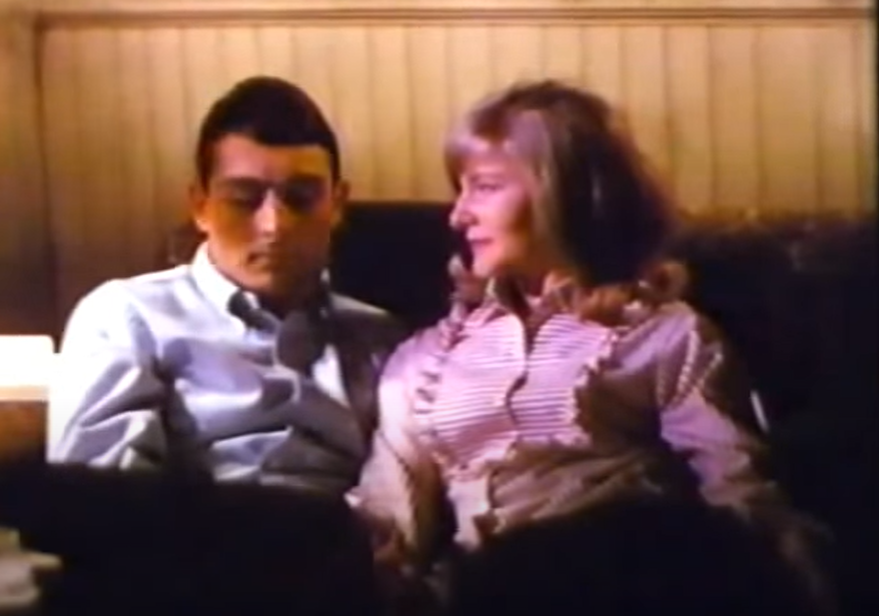
And another one! This is basically just an HBO series now.
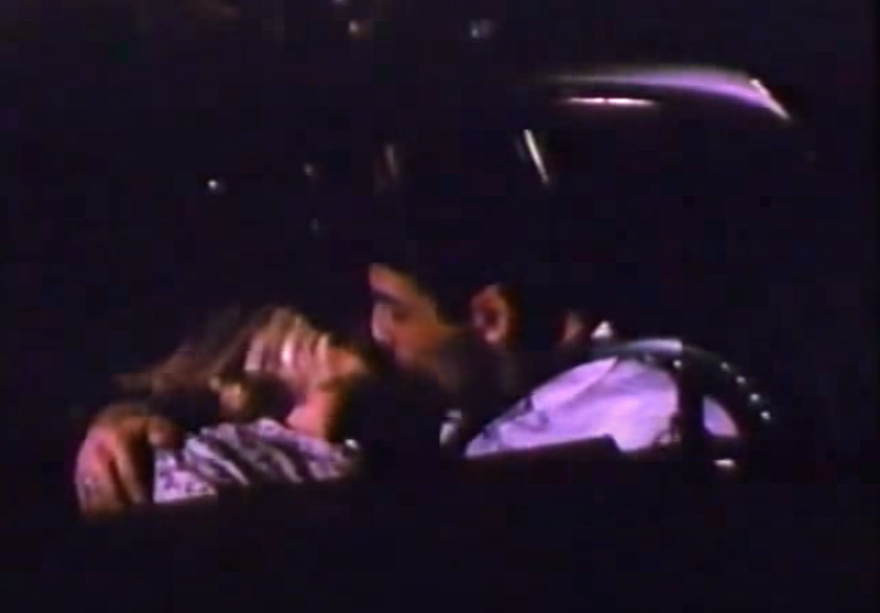
Bob says at one point the bishop called them into his office to scold these two grown ass adults for spending time alone and kissing. But Bob says the lecture fell on deaf ears because he and Sue knew they could quit any time, like a Draper mom who takes Percocet recreationally.
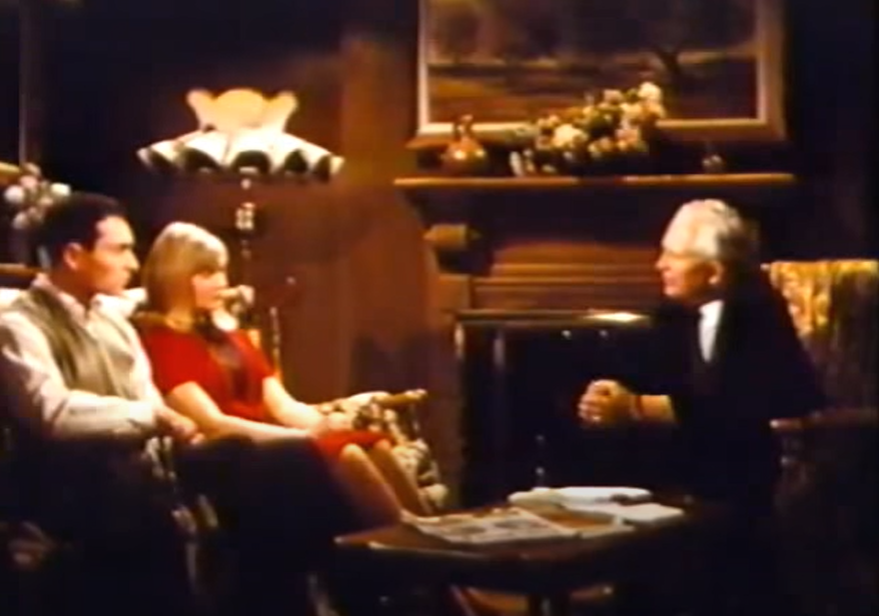
Arthur tells Bob “it’s a serious thing you’ve done,” and he informs Bob he doesn’t know whether Bob is going to be able to go on a mission now.
The next day Bob decides he’s for sure going to drop out of school and leave town instead of tell his bishop that he had sex, which, as we all know, are the two options available to a college student who loses his virginity.
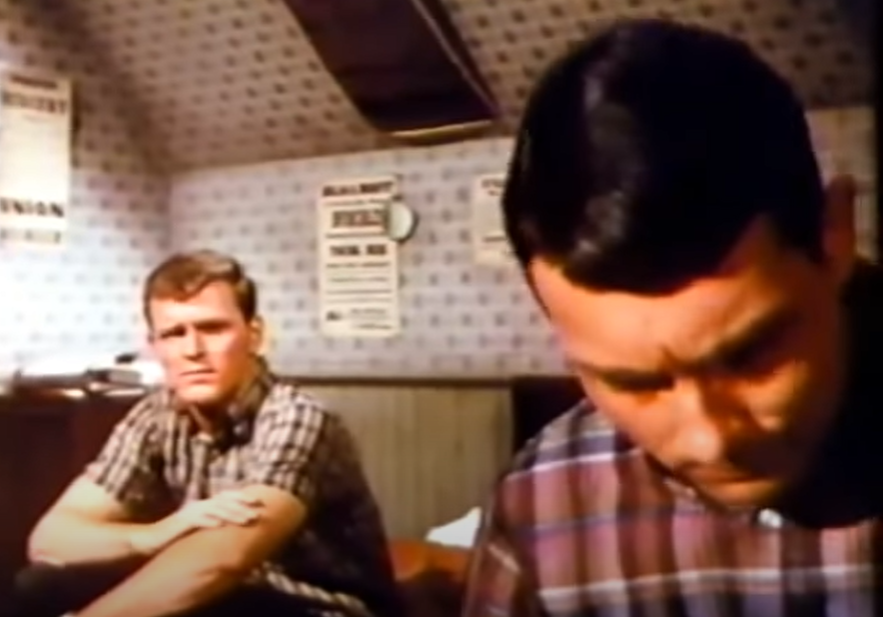
Arthur explains that the bishop is going to find out sooner or later. “Wouldn’t you rather be the one to tell him?!”
Is this bishop the Mormon mafia? Is Bob going to wake up with a Lamanite horse-head in his sheets?
“You’ve GOT to confess this to the bishop!” Arthur demands.
Arthur hands Bob a key. “Here, why don’t you take my car and go for a ride. Do some thinking.”
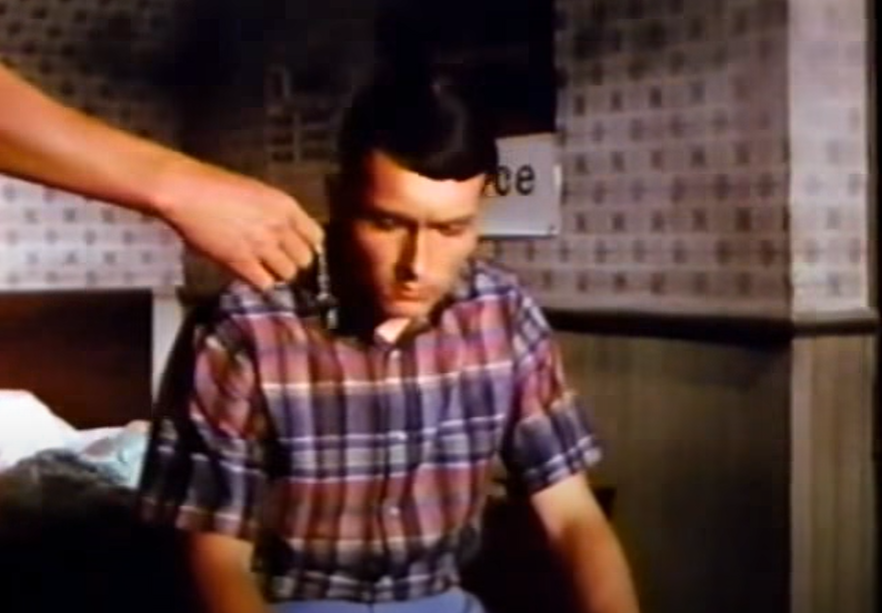
They are legit treating this like Bob is the leader of the free world contemplating nuking the Soviet Union and not like this adult man is trying to decide whether he should detail his sexual exploit with his girlfriend to some dude who is the religious equivalent to a volunteer deputy assistant.
Bob goes for his drive where he appears to be doing some thinking. The contemplative prayerful meandering is a common old Mormon film trope. It always signifies that someone is either repenting or deciding to get married too young. In this case, it could honestly be either.
Bob even gets out and walks on a train track and Lord I want a train to come hit him so I don’t have to watch the last five minutes and 31 seconds of this nightmare.
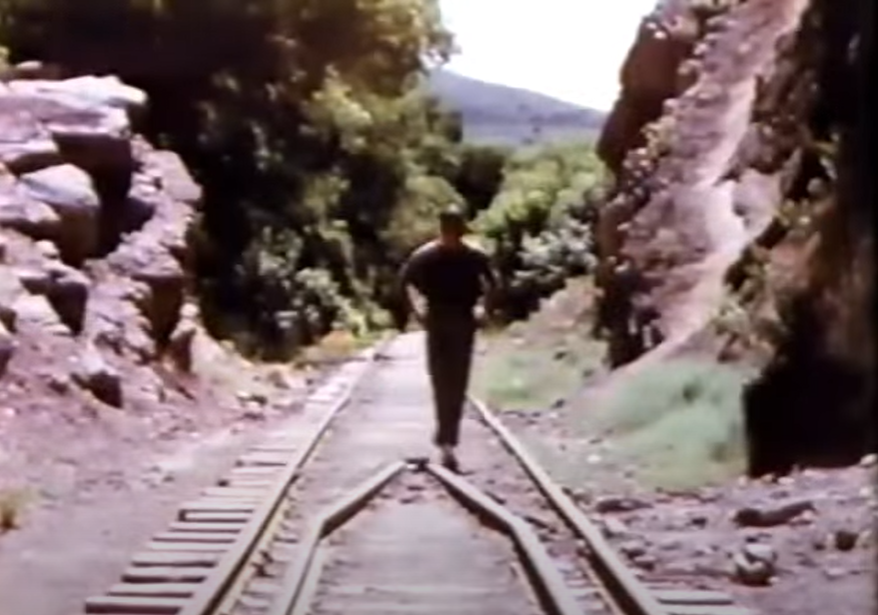
The long thoughtful drive and wanderings go on for a while. This is the most bored I have ever been watching a film. And I saw Phantom Thread.
Finally Bob stops and prays.
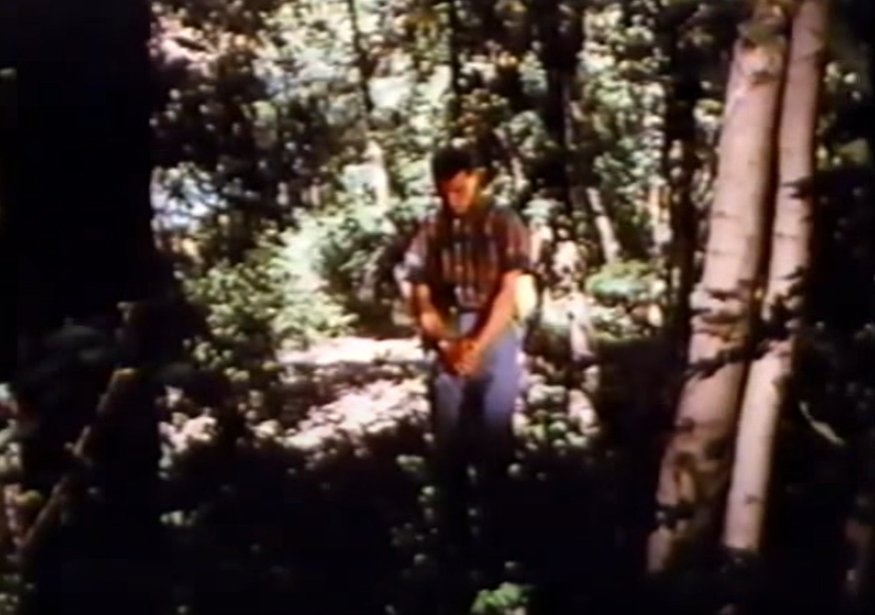
Bob then goes back and meets with the absolute sex god of a bishop who knows her worth.
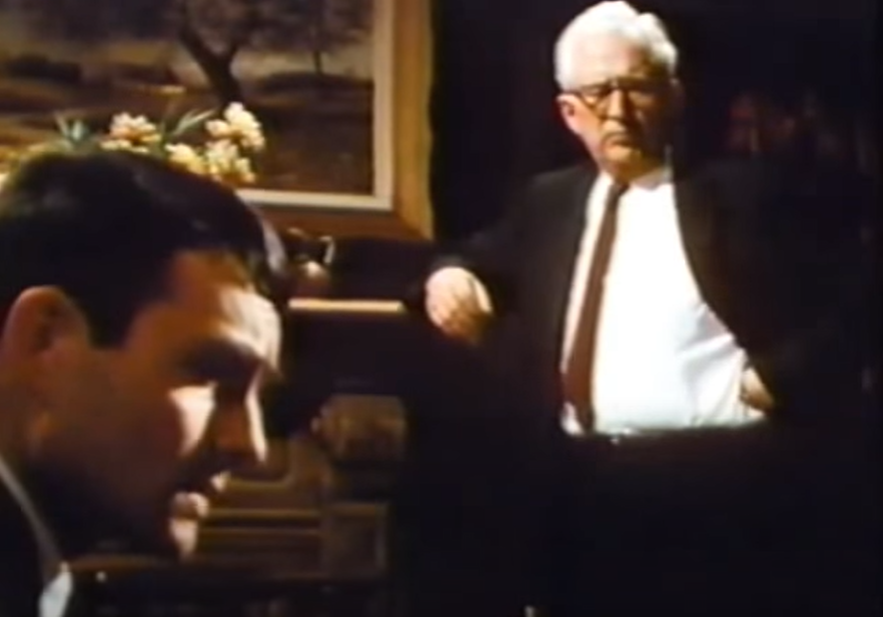
Bob vaguely explains that he and Sue decided to “neck and peck” and that he always felt guilty and look—if my husband ever describes any activity between us as “neck and peck,” he will have to neck and peck his way through some divorce papers.
Bob said that even though this made him feel guilty, they just kept doing it.
“Did you ever fast and pray for help,” Bishop Ralph Lauren asks.
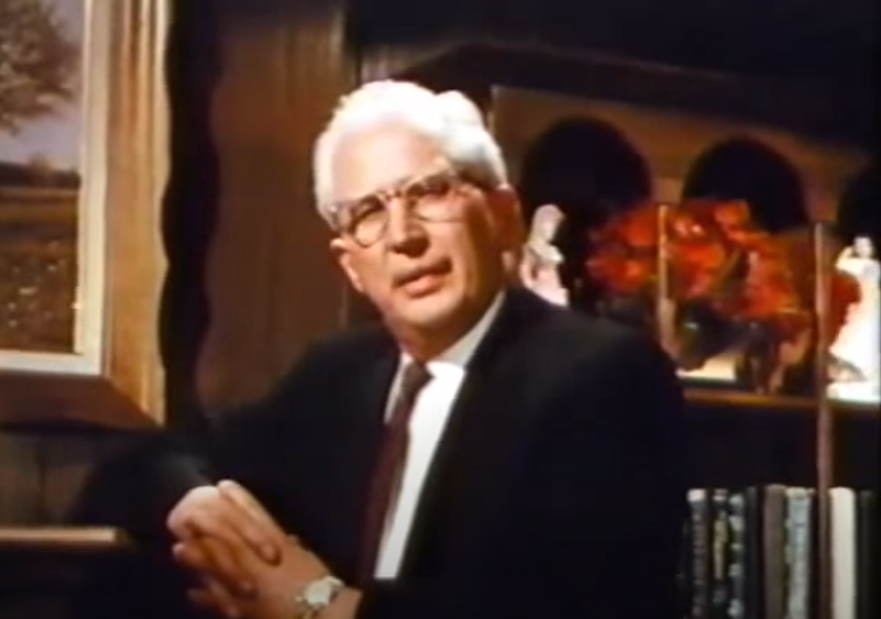
Bob didn’t fast because he was too horny or something.
Bob explains that “it finally happened” which I think means she pooped in front of him.
“Can I ever be forgiven, bishop,” this extremely distraught and obviously depressed man pleads.
Bishop is not so sure.
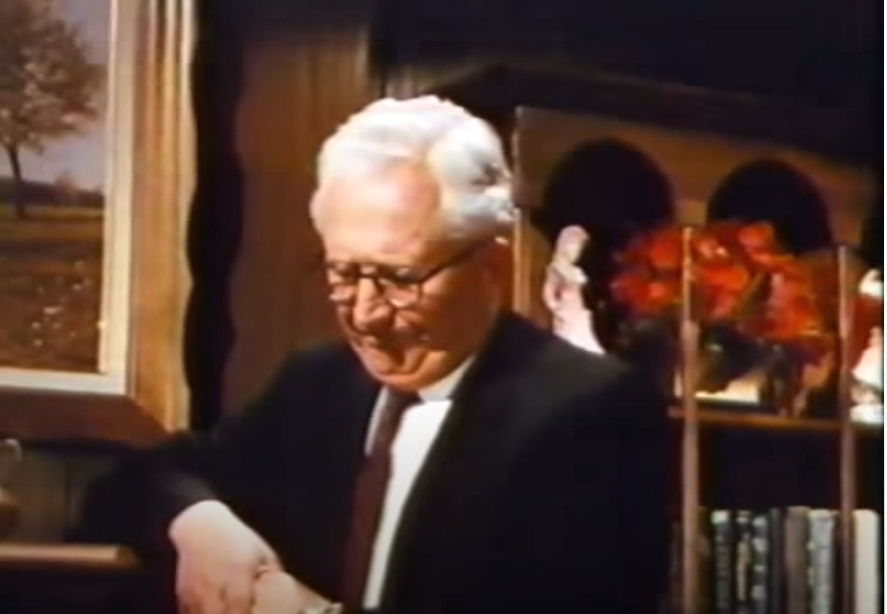
After thinking for a while, Bishop finally says that the Lord does forgive but now that Bob is a transgressor his path is going to be “hard,” which, as I recall, is what got Bob in trouble in the first place. Zing!
“It’s a Long Road Back,” Bishop says. And that’s how you know this is a good film. THEY SAID THE TITLE.
Bishop says he was going to interview Bob for a mission but now that shit isn’t happening.
“Yes, I realize now how serious this sin is,” Bob explains, now understanding that if you have sex one time this bishop will not send you to the jungle somewhere to perform 2 or 3 years of free hard labor where you only get to talk to your aging parents twice a year for a maximum of thirty minutes.
Now I kind of wish I had seen this film in 2003.
Bishop then gives a bunch of instruction about how Bob can get forgiveness.
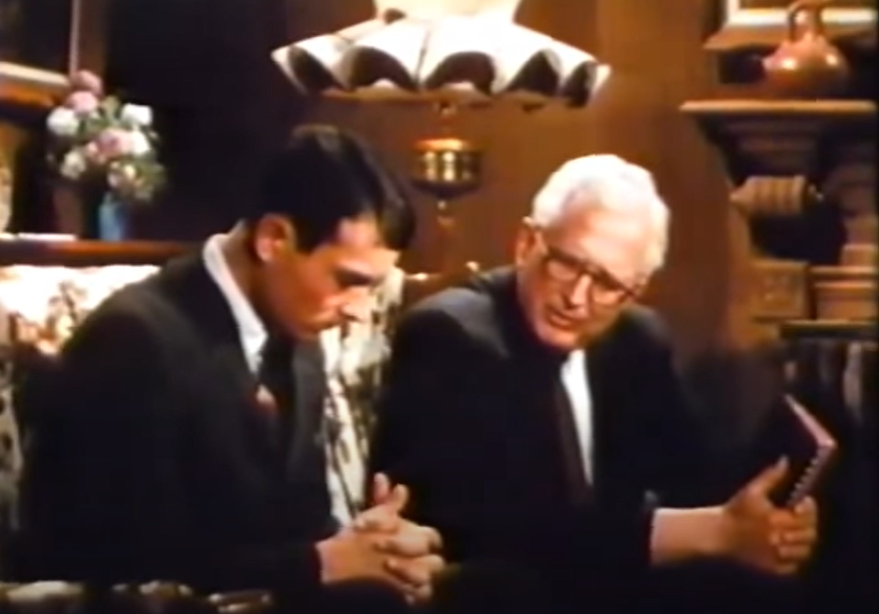
Bishop tells Bob that actually Sue came in earlier that morning to tell him all about the sex. This feels like a HIPAA violation or something.
Then Bishop tells Bob “I want you to know that everything you’ve told me will be held strictly confidential,” which is apparently not a covenant he made with Sue.
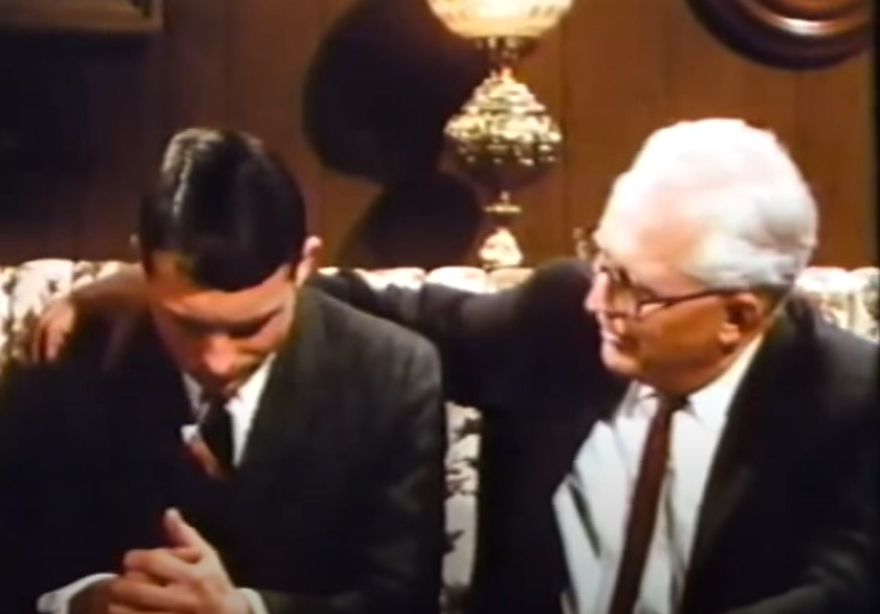
Bob then decides he’ll never have sex again.
The. END.
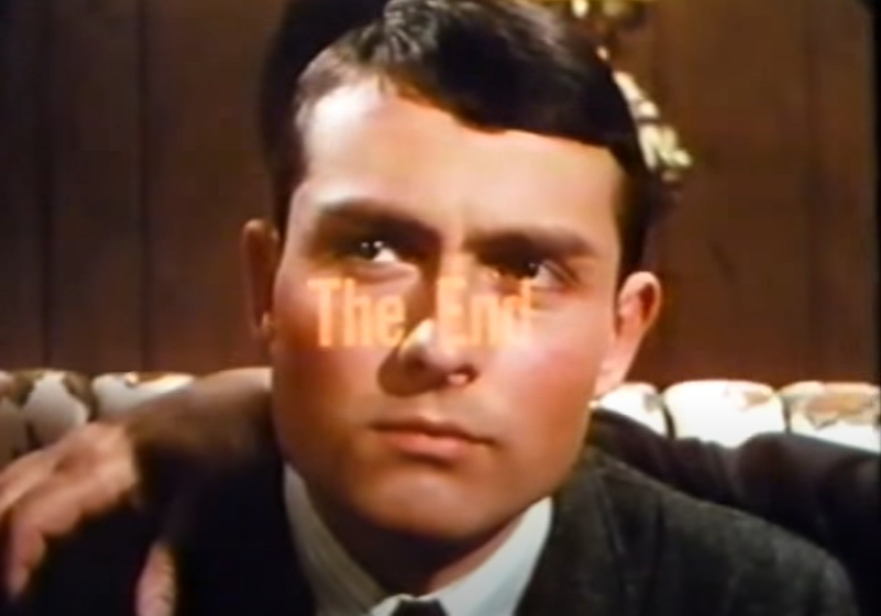
Art by Christopher Patty

